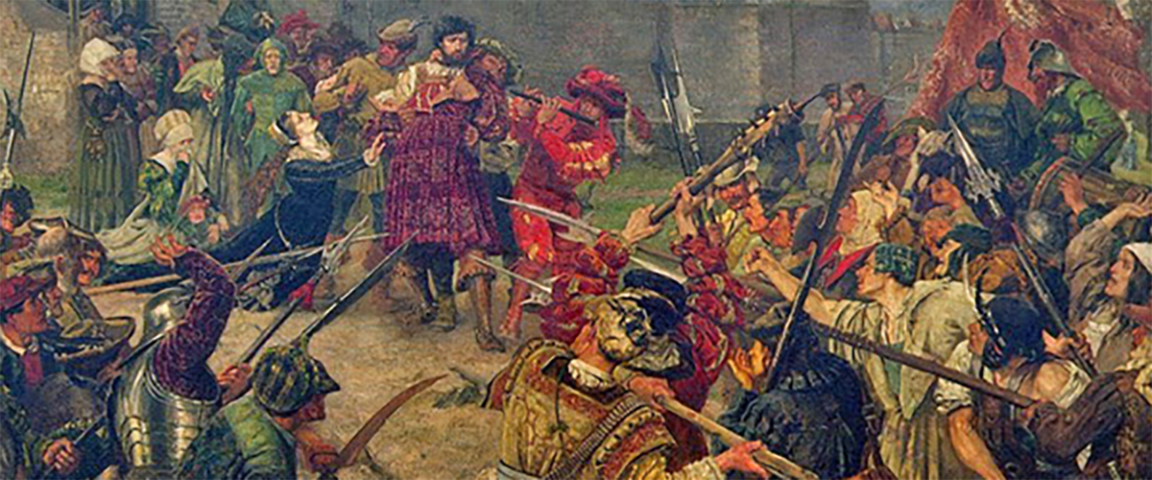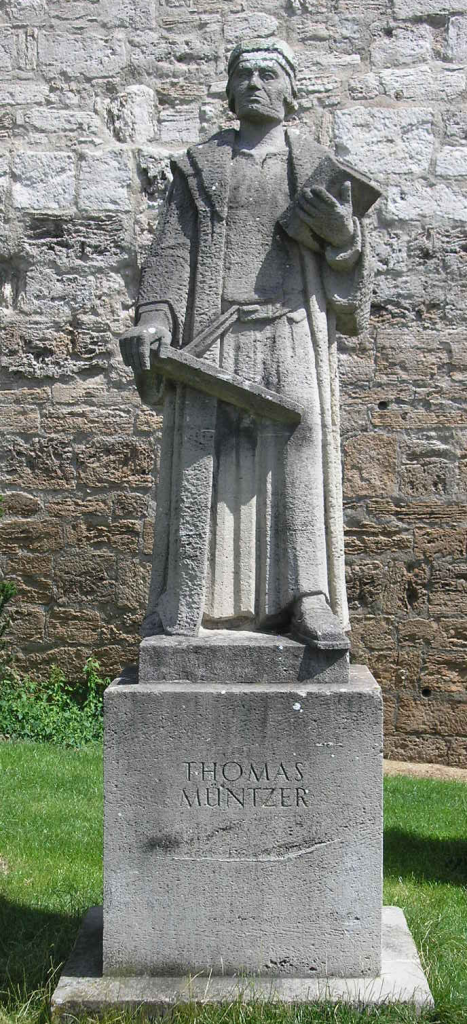- Have any questions? Contact us!
- info@dr-rath-foundation.org

Bisphosphonate Drugs For Osteoporosis WEAKEN Bones!
March 2, 2017
Study Finds High-Dose B Vitamins Have Protective Effect Against Air Pollution
March 16, 2017Thomas Müntzer – Violent Revolution Is Never The Answer

Thomas Müntzer (1489-1525) was born in Saxony, Germany. He received an academic education and decided very early on that he wanted to devote his life to God and the people. Even before he met his mentor Martin Luther, however, Müntzer had distanced himself from the Catholic Church. He felt the inequality that existed between poor people and the clergy was not being properly addressed. This led him to become a radical preacher and a significant influence in the early years of the Reformation.
Müntzer met Martin Luther in Wittenberg in 1517 and they developed into close friends. Exposed to Luther’s ideas, Müntzer became a strong supporter of his fight against the Catholic Church and its sale of so-called “indulgences”. A key means through which the Church financed itself at that time, in return for donating money people would supposedly receive an exception from punishment for certain types of sins. Such payments, they were told, would reduce or eliminate their suffering in Purgatory before reaching Heaven.
Luther was impressed by Müntzer’s commitment and courage. He saw in him a man who could help promote the ideal of a more just world where, regardless of how much money a person had, his or her access to Heaven would solely be based upon the goodness of their heart.
In 1520 Müntzer was recommended by Luther for a post as a preacher in the town of Zwickau. Perhaps partly due to the physical distance this established between them, their ideas subsequently began to diverge. For Luther, the inequality that existed among Christians was God-given. To him, it was not unjust that some people were born as peasants and others as princes. Müntzer, on the other hand, deeply questioned this. He saw everyone as equal and believed that beggars were no less worthy than kings. Luther found this idea too radical, and Müntzer eventually lost his support.

Statue of Thomas Müntzer
Image: By Michael Sander (Own work) [GFDL or CC-BY-SA-3.0], via Wikimedia Commons
Münzer’s life, however, was progressing in a different direction. In 1523 he went to Allstedt. By now becoming well-known for his radical preaching, he gradually gained more followers. He married a former nun, Ottilie von Gersen, with whom he had a son. Nevertheless, he soon became a threat to the authorities and had to leave. He subsequently moved around, spending time in Mühlhausen, Nuremberg, Basel, and the Hegau (an area between the Black Forest and Lake Constance).
In February 1525, Münzer returned to Mühlhausen and told the peasants there that they were ‘tools of God’ who could change the world for the better. In his eyes, it seemed clear the Reformation would not happen in a peaceful way and that the clergy would not give up any of its power. He therefore encouraged the peasants to form an army and fight for their rights. He was convinced that only through a ‘cleansing process with the sword’ would the powerful clergy be eliminated and all the wrongs of the world put right. But during the battle which consequently took place at Bad Frankenhausen on 15 May, 1525, a total of six thousand peasants lost their lives.
After this defeat, Müntzer was arrested and taken to Mühlhausen where he was sentenced to death. On 27 May, 1525, following torture, he was executed.
Brave and bold, until his last breath Müntzer believed he had served the people. However, the time to implement his idealistic world order, in which all people are seen as equal and deserving of the same rights, had not yet arrived. In this respect, given that even today we still await the arrival of such a world, one could argue that Müntzer was born centuries ahead of his time.
Müntzer’s failure reminds us that, no matter how much we might be convinced we are right, violence is never the answer. Instead, our transition to a world of health, peace, and social justice can only be achieved through a peaceful revolution that is based upon educating our fellow citizens. If enough of us commit ourselves to this worthy task, together we can create a better, fairer world for everybody.


